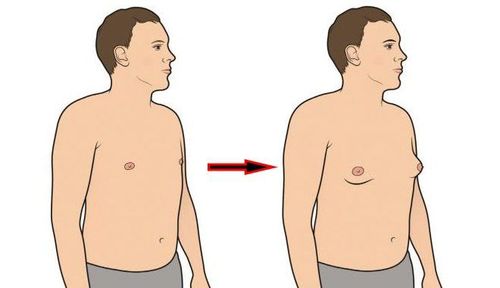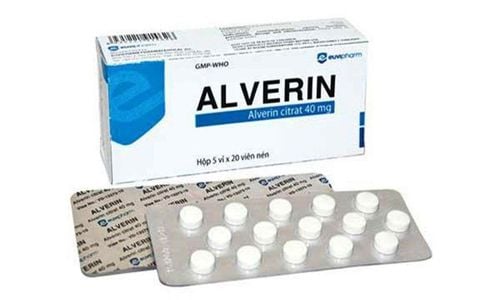This is an automatically translated article.
The article was written by Doctor Mai Vien Phuong - Department of Examination & Internal Medicine, Vinmec Central Park International General HospitalAccording to research published in the International Journal of Clinical Practice, men tend to see their doctor less often than women. They may skip annual checkups, ignore symptoms, or delay getting medical help when they need it. In some cases, those delays can be dangerous. Early diagnosis and treatment can often improve your outcomes for many health conditions.
1. Short of breath
Chest pain is a common sign of a heart attack, but there are other signs you may not be aware of. While the symptoms of a heart attack can vary from person to person, there can be early warning signs that you're at risk, such as shortness of breath on exertion.For example, if you feel short of breath after an easy walk, this could be an early sign of coronary ischemia. This condition is when you have a partial or complete blockage of an artery that carries blood to your heart. A complete blockage can cause a heart attack.

Make an appointment with your doctor if you have chest pain or difficulty breathing. Go to the emergency room if you experience symptoms of a heart attack, such as:
Pressure in your chest Chest tightness Extreme shortness of breath Dizziness Unintentional weight loss Unless you are actively trying Trying to lose weight, losing weight can be a cause for concern. Unexplained weight loss is often one of the first signs of many diseases, including cancer. It's important to see your doctor and let them know if you've recently lost weight without trying.
2. Bloody or black stools
The color of stools can change from day to day, depending on the foods you eat and the medications you take.
For example, eating beets can give your stool an alarming red color. Likewise, iron supplements and some diarrhea medications, such as bismuth subsalicylate (Pepto-Bismol), can temporarily turn your stools black or tarry.
Anything in the brown or green spectrum is normal. But if your stools are black, bloody, or pale, it could indicate a problem. In some cases, this problem can be serious.
Black stools may indicate upper gastrointestinal (GI) bleeding. Chestnut or bloody stools may indicate bleeding in the lower gastrointestinal tract. Your doctor will likely check for signs of bleeding, hemorrhoids, or ulcers. Light colored stools could signal a problem with your liver or bile ducts.
If you notice unusual changes in the color of your stools, contact your doctor immediately.
3. Frequent urination
Frequent urination can be a sign of diabetes. Diabetes can cause you to urinate often because your kidneys have to work overtime to remove excess sugar from your blood.
Prostate problems can also cause frequent urination. Other symptoms of prostate problems include decreased flow when urinating, discomfort in the pelvic area, and blood in the urine or semen.
Benign prostatic hyperplasia, also known as an enlarged prostate, is a common condition in older men. Although it's common, you shouldn't ignore the symptoms because they can resemble symptoms of other, more serious conditions.
Talk to your doctor if you experience any of the above symptoms.
4. Constipation
Occasional constipation is normal. Most people experience it from time to time, and it usually becomes more common after the age of 50. But chronic constipation can be more problematic.
Chronic constipation can cause you to strain and strain when trying to have a bowel movement. This increases the chance of developing hemorrhoids, which can cause bleeding and discomfort around the rectum.
Chronic constipation can also be a sign that something is preventing your stools from passing properly. A tumor, polyp, or kink in your intestines may be blocking your colon. You may also have an underlying condition that causes abnormal bowel movements.
Early diagnosis is important so you can rule out serious conditions, such as colon cancer.
5. Erectile Dysfunction
In addition to worries about sexual performance, erectile dysfunction (ED) can be a sign of a more serious problem, such as cardiovascular disease.
ED can also occur due to increased stress or depression. If you are experiencing these problems, talk to your doctor about medication options and mental health counseling.
ED is a condition that doctors treat regularly. The sooner you solve the problem, the sooner you will find the solution.
6. sour often
Many people experience occasional heartburn after eating greasy burgers or pasta. But if you have heartburn after every meal, you may have gastroesophageal reflux disease (GERD).
This condition is also commonly known as acid reflux. If you have acid reflux, the acid in your stomach will back up into your esophagus. If you don't get treatment, this stomach acid can eat away at the tissues of the esophagus and cause irritation or ulcers. In rare cases, chronic GERD can lead to esophageal cancer.
Symptoms of GERD can also mimic other rare but treatable problems. In some cases, you may think you have heartburn when you're actually having a heart problem. See your doctor if you've been having problems with heartburn for a long time.
7. Snoring too much
Chronic loud snoring can be a sign of obstructive sleep apnea. In this condition, the muscles in your throat relax and temporarily block the airway while you are sleeping. This can cause breathing problems and disrupt your sleep. These constant interruptions can make you feel sleepy or tired even after getting enough sleep.If left untreated, sleep apnea can increase your risk of cardiovascular disease, heart failure, or abnormal heart rhythms. Snoring and obstructive sleep apnea have also been linked to obesity and type II diabetes.
8. Enlarged breasts or lumps in the breast

You may think that breast cancer is a disease that only affects women, but that is not true. According to the American Cancer Society, an estimated 2,670 men in the United States will be diagnosed with breast cancer in 2019. Most of them are older men, ages 60 to 70.
>>> What causes breast cancer in men?
See your doctor if you feel a lump or thickening in your breast, or if your nipples darken, turn red, or start to discharge. Early diagnosis is key to getting the treatment you need.
Take control of your health by making an appointment with your doctor if you notice any of these symptoms. They can be a natural sign of aging or an easily treatable condition, but it's important to rule out any serious causes.
In some cases, these symptoms may indicate that you have a serious medical condition. Recognizing and treating a problem early can often improve the chances of a full recovery.
Please dial HOTLINE for more information or register for an appointment HERE. Download MyVinmec app to make appointments faster and to manage your bookings easily.
References:Kendall BJ, et al. (two thousand and thirteen). The risk of Barrett's esophagus associated with abdominal obesity in males and females. DOI: 10.1002/ijc.27887 Key statistics for breast cancer in men. (2019). cancer.org/cancer/breastcancerinmen/detailedguide/breast-cancer-in-men-key-statistics Leung L, et al. (2011). Chronic constipation: An evidence-based review. DOI: 10.3122/jabfm.2011.04.100272 Muraki I, et al. (2018). Sleep apnea and type 2 diabetes. DOI: 10.1111/jdi.12823 PH and sleep apnea. (n.d.). phassociation.org/patients/aboutph/diseases-and-conditions-associated-with-ph/sleep-apnea/ Pinkhasov RM, et al. (2010). Are men shortchanged on health? Perspective on health care utilization and health risk behavior in men and women in the United States. DOI: 10.1111/j.1742-1241.2009.02290.x/














